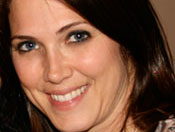By Carly Friedberg, M.A. CCC-SLP
 As a speech therapist, people always ask me how to assess whether or not their children have speech and language disorders.
As a speech therapist, people always ask me how to assess whether or not their children have speech and language disorders.
Speech Disorders:
Articulation is how speech sounds are made. When a child deletes a sound, substitutes changes, or adds a sound, they may have a speech disorder or a phonological disorder, depending on their age. These errors make it hard for a child to be understood by others.
VOICE is the use of vocal folds and breathing to produce sounds. The voice can be abused from overuse or misuse and can lead to hoarseness, breathiness, a scratchy or rough voice or sometimes even a loss of voice. These children may develop what nodules or polyps on their vocal folds.
Another issue that speech therapist work with is
STUTTERING affects the fluency of speech. For many children, normal stuttering can begin around 3 years of age, but disappears within a couple of months. When stuttering persists or worsens speech intervention may be necessary. Stuttering is characterized by disruptions in the production of speech sounds, also called “disfluencies”.
Other speech disorders include Oral Motor Disorders when children have reduced strength, range of motion and mobility of the lips, tongue & jaw, Apraxia of speech which is a motor speech disorder, Dysarthria of speech which is caused by muscle weakness.
RECEPTIVE LANGUAGE
Receptive Language is the understanding of what is being said. Receptive language would be the areas of comprehension of information or understanding the meaning of words, being able to follow directions, the ability to process information (which includes memory, discrimination, attention and listening and classifying information). The information heard needs to be received and interpreted correctly.
Weaknesses in this area would cause failure to understand what teachers say, children to miss important parts in lectures and misinterpret assignments and test questions. Children may have difficulty comprehending what they read, difficulty solving problems, may misunderstand words, have difficulty retaining and recalling information and have difficulty working effectively with others.
EXPRESSIVE LANGUAGE
Expressive language involves expressing thoughts and feelings, being able to participate effectively in a conversation, utilizing the appropriate semantics (meanings of words), understanding and using the rules of grammar and syntax, and formulating sentences and ideas.
Weakness in this area for a child may cause children to have respond to questions with a delay, have difficulty retelling a story or event using a logical sequence, difficulty retrieving ideas and vocabulary, difficulty expressing thoughts, may have difficulty interacting with peers. These children may not verbalize willingly in class. They may appear inattentive and restless. These children may demonstrate difficulty in all of the language-based academics, which include reading comprehension, written expression and math problem solving.
The earlier your child receives intervention, the better. If you are concerned that your child may be exhibiting some of these difficulties mentioned, you are highly encouraged to contact a licensed Speech and Language Pathologist to assess if there is a possible need for speech and language intervention.
Carly Friedberg has her M.A. in Speech and Language Pathology from the University of the Pacific. She has been practicing since 1996 and now has a private practice called Talk of the Town Speech Pathology. She lives lives in Los Angeles with her husband and three children.
